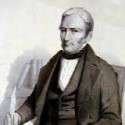Sources
Cabet, Etienne. “Voyage To Icaria.” In Voices of the Industrial Revolution, edited by John Bowditch and Clement Ramsland, 145-153. Ann Arbor, MI: University of Michigan Press, 1961
A primary source, Voices of the Industrial Revolution, includes a chapter with translations of Etienne Cabet’s Voysage en Icarie. In this source Cabet goes over the main principles of his Icarian Utopia, and explains to the reader the reasoning, and his belief behind each ideal. Amongst these ideals are fraternity and equality, which are important to my research, as these two ideals will be important to explaining the basis of how gender roles should be according to Cabet’s teachings. In comparison with other sources, this source is unique in that it is Cabet’s own words. It also focuses strictly on the ideals of the community, and nothing else in comparison to other sources, which cover many areas of the Icarian Utopia.
Garno, Diana M. “Gender Dilemmas: ‘Equality’ and ‘Rights’ for Icarian Women*.” In Utopian Studies 6 (2), 52-74. Penn State University Press, 1995.
A secondary source, Utopian Studies, provides a chapter describing the female experience in the Icarian Utopia. Diana shows the female experience by writing about women in the community and what impact they made. This source is extremely useful to me as it will be the main source I use to retrieve information on female life in Icaria. From this source I can draw multiple different perspectives of the female Icarian life, as this chapter includes explanations of multiple prominent females in Icaria. The most applicable aspect of this source is the account of specific women within the Icarain community.
Kagay, Donald J. “Icaria: An Aborted Utopia on the Texas Frontier.” Southwestern Historical Quarterly (2013): 359-385.
A secondary source, the Southwestern Historical Quarterly, published an article focusing specifically on the Icarian community formed in Texas. This source gives me a closer look at a specific Icarian community and provides me more concrete evidence of the issues Icarian’s faced. These issues are important to me as they had an affect on the gender roles in society. In comparison with other sources, this source is more of an overview of the Icarian lifestyle with an emphasis on the issues that arose.
Ross, Marie Marchand. Child Of Icaria. Westport, CT: Hyperion Press, 1976.
A primary source, Child of Icaria, is Marie Marchland Ross’s personal account of being an Icarian child. This source is extremely valuable to me, because although Marie is a child she is a female living in the Icarian community. Having a personal account of this experience provides valuable insight towards female life in Icaria. Marie also occasionally speaks of her mother and father, which I can use to explain gender roles within an Icarian household. In comparison to other sources, this source will help me pull direct evidence on gender roles and female life.
Sutton, Robert P. “An American Elysium.” In America’s Communal Utopias, edited by Donald E. Pitzer, 279–96. Chapel Hill: University of North Carolina Press, 1997.
A background source, America’s Communal Utopias, provides a chapter with a basic overview of the Icarian community. This source will help me provide background to the reader and explain some basic principles of the Icarian Utopia. The source also includes some minor explanations of gender roles and equality within the Utopia, which I can use as the overarching ideas to female life and gender roles in Icaria. In comparison with other sources, this source is will be used more to help the reader what the Icarian Utopia is and what basic life in the community is like.
